What happens when a vociferous liberal Muslim, who speaks out on issues related to secularism, terrorism and relationship of religion and politics, comes face to face with a former Captain of the Indian Army, who can reel out detail after detail about “lessons” from the Second World War, other battles and even hostage crises—such as the one in Russia’s Beslan, much like a war historian. Well, you have to wait to find out. Tarek Fatah, a straight-shooter and a man who finds no virtue in an Islamic State, will be in conversation with former CEO of Natgrid (National Intelligence Grid), a trained Indian Army Captain and a TEDx India regular. One of India’s highest paid technocrats, Raman was recruited by the government to head Natgrid post the 26/11 Mumbai terror attacks. Incidentally, today the tragic incident marks its seventh year. This report in The Economic Times
shared an interesting anecdote about Raman. After reading a paper authored by Raman, a senior officer told his ward jokingly, “Anyone who writes like this is destined to either be a general or be court-martialed.” [caption id=“attachment_2522710” align=“alignleft” width=“380”]
 Canadian author Tarek Fatah. Image courtesy: IBNLive[/caption] Raman had surmised in his paper that the Indian Army adopted a farcical mix of the Nato and Warsaw doctrines; “while the former alignment, equipped with state-of-the-art weapons, would not “cede an inch”, the low-cost-arms-using Warsaw line-up let enemy forces advance until the time was ripe for them to strike back. Raman wrote that India followed the Nato policy with cheap “Warsaw equipment”.” Fatah has been known to speak on issues of terrorism, the Islamic State, communal intolerance and the compulsion that fuel these movements. This Pakistan-born Canadian author has trekked rugged terrain and generated controversy along with admiration. His books, Chasing a mirage: The Tragic Illusion of an Islamic State and The Jew is Not My Enemy: Unveiling the Myths that Fuel Muslim Anti-Semitism, are a reflection of a strong personal conviction that the unsaid turns sour if kept that way and has to articulated and discussed and even if it ruffles feathers so be it.. Not many people are endowed with that kind of courage and Fatah, it has to be said, does not provoke for the sake of provocation. His path is one of more prudent debate and logic, ready to take on board every point of view, so far as his is also given an airing. When Firstpost asked Fatah earlier today why should people come to watch him talk, this is what the secular-liberal had to say: “They should come and try to figure out if they are sick and tired of politically correct nonsense that you here so often on television channel’s, especially in India. If you want to have a heart to heart conversation with somebody and want to ask or tell me that I’m wrong in saying something, please do come.”
Canadian author Tarek Fatah. Image courtesy: IBNLive[/caption] Raman had surmised in his paper that the Indian Army adopted a farcical mix of the Nato and Warsaw doctrines; “while the former alignment, equipped with state-of-the-art weapons, would not “cede an inch”, the low-cost-arms-using Warsaw line-up let enemy forces advance until the time was ripe for them to strike back. Raman wrote that India followed the Nato policy with cheap “Warsaw equipment”.” Fatah has been known to speak on issues of terrorism, the Islamic State, communal intolerance and the compulsion that fuel these movements. This Pakistan-born Canadian author has trekked rugged terrain and generated controversy along with admiration. His books, Chasing a mirage: The Tragic Illusion of an Islamic State and The Jew is Not My Enemy: Unveiling the Myths that Fuel Muslim Anti-Semitism, are a reflection of a strong personal conviction that the unsaid turns sour if kept that way and has to articulated and discussed and even if it ruffles feathers so be it.. Not many people are endowed with that kind of courage and Fatah, it has to be said, does not provoke for the sake of provocation. His path is one of more prudent debate and logic, ready to take on board every point of view, so far as his is also given an airing. When Firstpost asked Fatah earlier today why should people come to watch him talk, this is what the secular-liberal had to say: “They should come and try to figure out if they are sick and tired of politically correct nonsense that you here so often on television channel’s, especially in India. If you want to have a heart to heart conversation with somebody and want to ask or tell me that I’m wrong in saying something, please do come.”
Firstpost Salon as it happened: Islamic State mentality is already in India, says Tarek Fatah
Tarek Fatah, a straight-shooter and a man who finds no virtue in an Islamic State, will be in conversation with former CEO of Natgrid (National Intelligence Grid), a trained Indian Army Captain and a TEDx India regular.
)
Is ISIS mentality creeping into India?
“ISIS mentality is already here. Wiping out an ethnicity (Hindus from Kashmir) is ISIS mentality. All of India is intolerant.”
What is the meaning of being a Muslim
“Most muslims have a convulsion if the listen to my answer. A muslim is essentially a Jew who has adapted Judaism to Arab pagan culture.”
You say so many controversial things. How are you alive?
If you speak the truth you are bound to be safe and when you die, you die with dignity.
They know I’m telling the truth and they are lying, that’s why I’m alive
Why so much silence in Indian media about Wahabi Islam?
They don’t know about it. Arun Shourie’s book should be a hotseller, but it isn’t. It’s huge in the US. But nobody in India has that book. Every family in India in the middle class that is politically active must read that book to know about the sham of Madrassas.
I would like to know about azaan, where kaafirs are called upon.
Azaan does not include that. It’s basically a call to prayer. Except a line in the morning that says prayer is better than sleep, but I have a difference of opinion.
Before the Friday jumma congregation, there is a line that says “O God, give us victory over the kufar”. I have been campaigning to get that line expunged, as part of a way to increase the respect of Muslims in the eyes of other communities. It’s so crass, and there’s no evidence it’s part of the Quran. This is repeated in every mosque all over the world in Arabic and 80% of the world has no clue what it is.
Muslims have to turn Hagia Sophia to the Christians. They better not call Islam a religion of peace until they return it.
If you cannot do things like that, then live with Islamophobia and people will hate you. And you’ll create such a climate that your kids will get beaten up in the streets.
‘World is close to a third world war and India can prevent it but you are busy with Aamir Khan’
“First time since the 2nd world war, a Russian jet was shot down by Turkey. Meanwhile, India is obsessed with Aamir Khan and Kiran Rao. India is in unique position today where PM Modi can intervene, call the Russian and Turkish ambassadors and hold a conference. Instead, the Prime Minister has gone to Singapore and he is talking of Little India and trains. Are you crazy.”
“Aamir Khan is a quintessential Indian. How many Muslims are comfortable marrying a Hindu? He is a genuine symbol of India.”
“You should broker peace between China and US. Even if they reject it, at least try.”
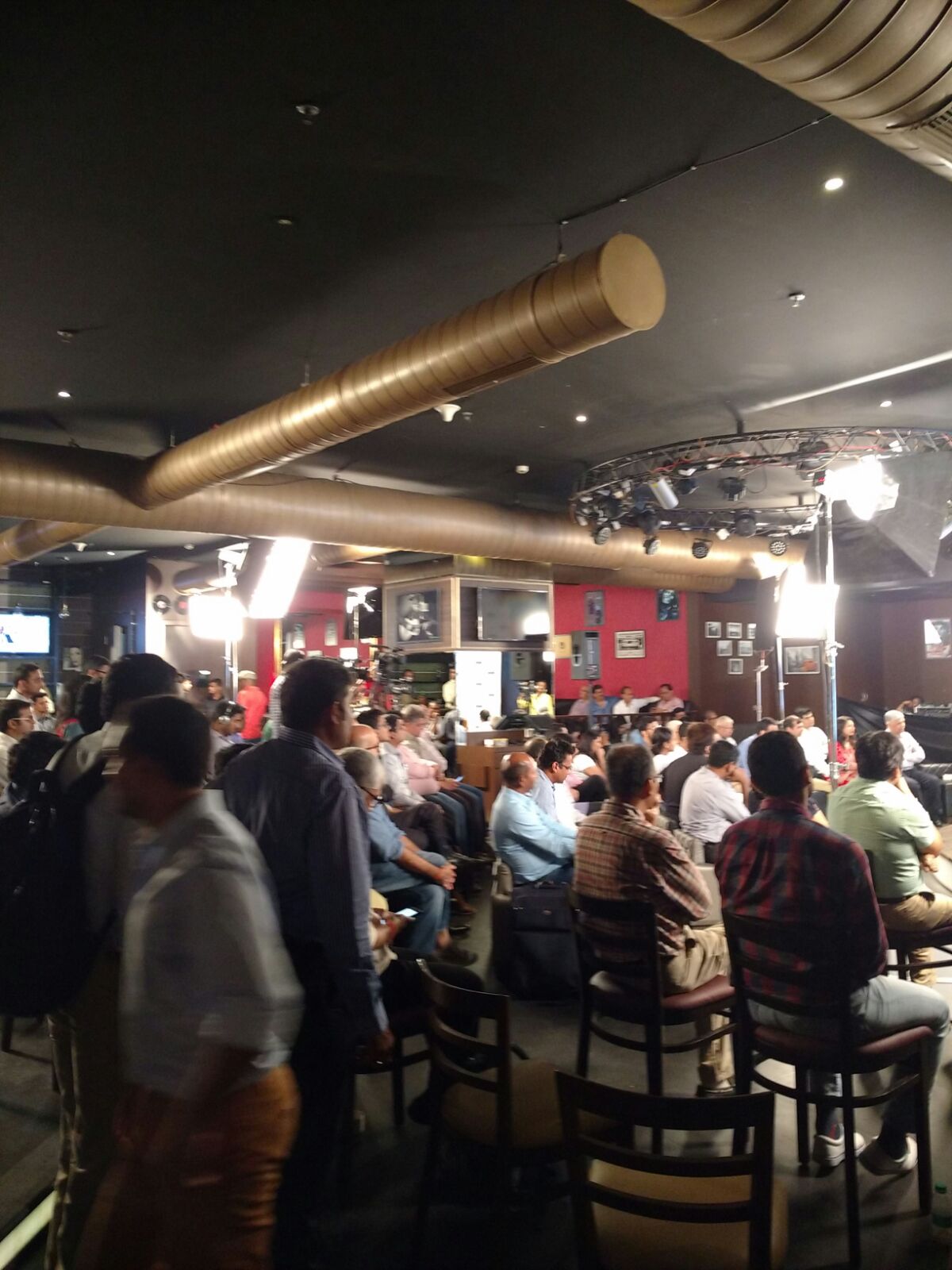
Raghu opens the floor to questions
Why is Balochistan taking so long to become another Bangladesh?
“Balochistan is home to Hinduism’s oldest deities. Civil war is on. While India is run by bureaucrats and civil servants. Balochistan will be free because law of physics, ethics, culture and morality determine that people cant be occupied forever.”
Raghu opens the floor to questions
Why is Balochistan taking so long to become another Bangladesh?
“Balochistan is home to Hinduism’s oldest deities. Civil war is on. While India is run by bureaucrats and civil servants. Balochistan will be free because law of physics, ethics, culture and morality determine that people cant be occupied forever.”
Facade of irrationality often displayed by a section of Pak high command is more to exacerbate their threat?
‘‘Chinese have no love for Islam, so when China says Muslims will only fast for six hours, they conducted a dance festival and made the mullahs dance.
“This is what the Saudis did in the past to torture them.”
“God is with us, He is not with you” – That is not childish, that is a real belief in Pakistan
The people in Pakistan have no problem with their children growing up in caves without civilisation.
Why would a country have tactical nuclear missiles that can only go 50 miles?
If you’re willing to hit your own territory/people…
Neither Indians, Chinese, Russians, Americans, British have pondered tactical nukes. This shows you that people who relish their lives won’t resort to such weapons.
With Pakistan, we are dealing with people who don’t know who they are.
Iran? Sane
Turkey? Sane
Pakistanis are people denying who they are.
It’s like a French person saying ‘No, I’m not French.. I’m from the Congo"
Religion has been used for greedy purpose. Money, power purposes being the top ones.
“Muslims belief of the concept of armageddon: Seeking the end of time and to bring it as close as possible. The battle has begun for the Muslim world, you might think it is some fantasy but it is truth for us.”
Tarek Fatah speaks about the Sharia Law
“Islam gets in the hands of non-Muslims. These guys start writing Sharia Law. Monarchy comes into Islam, a concept which doesn’t exist in Islam.”
Timeline of the Sharia Law
“In 632 the Prophet died. Body was not buried for 18 hours. Locked Ali and a few companions at home. They fight among themselves who will become the successor. Mohammad has not said a word on who will be the successor. There was no mention of an Islamic State. The 2% Muslims of Arabia, who were butchers, were declared the rulers of Islam. Iran cannot have an Iranian Supreme Leader. He has to be an Arab.”
“There is something deeply suspicious”
“There is something deeply suspicious about the black ink which was thrown on Sudheendra Kulkarni. He did not wipe his eyes even once. The first thing you do when you’ve ink in your eyes is wipe it.”
‘1978 I moved to Saudi Arabia’
“It was an act of desperation. Pakistan had outlawed seven of us from the nation. We were working in advertising. Arabs have destroyed Kabba earlier and they destroyed it again in 1986. They butchered Muslims,” Fatah says as he recounts when Muslims were attacked at Mecca.
Speaking about Saudi Arabia:
“They are murderers, supremacists, misogynists, sodomists and they are dangerous. Saudi Arabia has inflicted Islamic State on the entire world because of their hatred for India and Pakistan. Every aspect of Indian Islam is Hinduism.”
“Pakistan’s existent is based on majority saying we are not punjabis. Out of the 500 linguistic cultures, they are the only ones who shunned their own language. Because of Islam.”
Fatah charged with sedition in ‘78
“After the war, since the records went missing Pakistan agencies could not recognise me and I got a job as a producer in a Pakistani television channel. I was charged with sedition after 6-7 years when Zia-ul-Haq came to power.”
‘Jinnah was evil’
“Indians hate Gandhi and Nehru but they love Jinnah. Jinnah, a paedophile who had sex with a 16-year-old, is not hated in India. They blame Gandhi and Nehru for Pakistan. This is India’s inferiority complex for white skin. India is screwed up,” says Fatah as the crowd at D’Bell cheers him on.
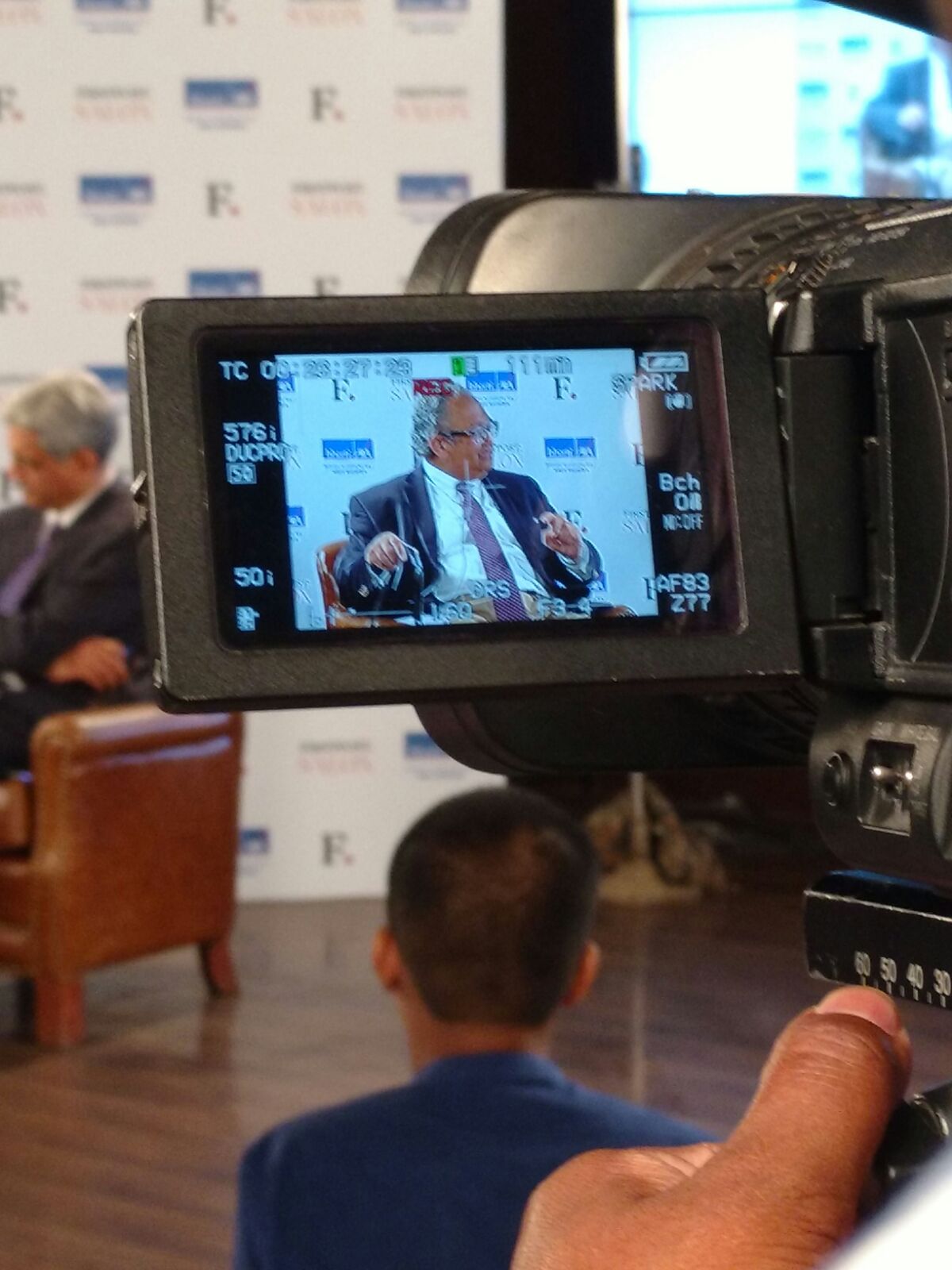
The audience is spellbound as Tarek Fatah talks about his time as a reporter in The Karachi Sun.
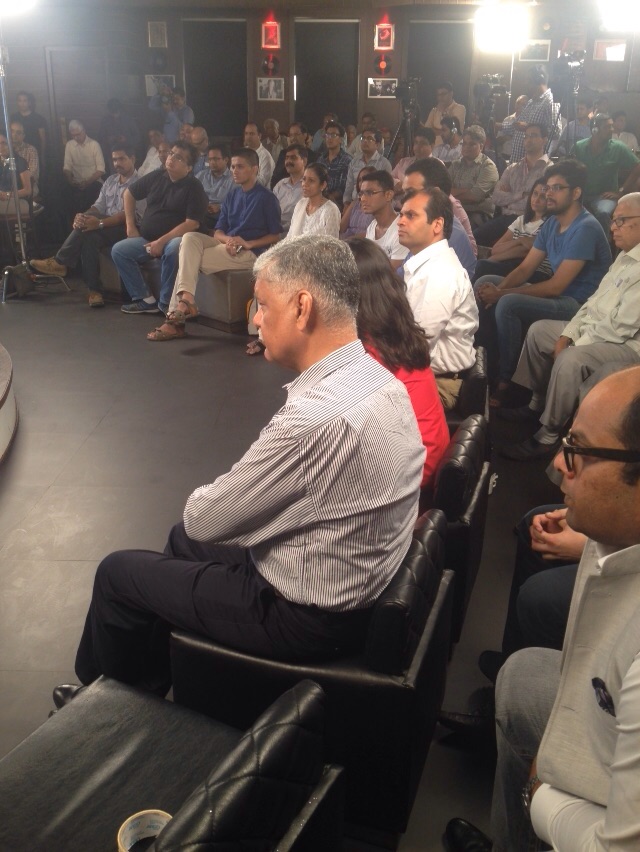
I was prisoned quite a few number of times
“I was involved in student’s union movement. I was prisoned quite a few times while rallying against the regime. In 69, I was prisoned against the martial law. Communism and Karl Marx wasn’t too popular in my house. I started working as a reporter in a newspaper. They were testing times,” says Fatah.
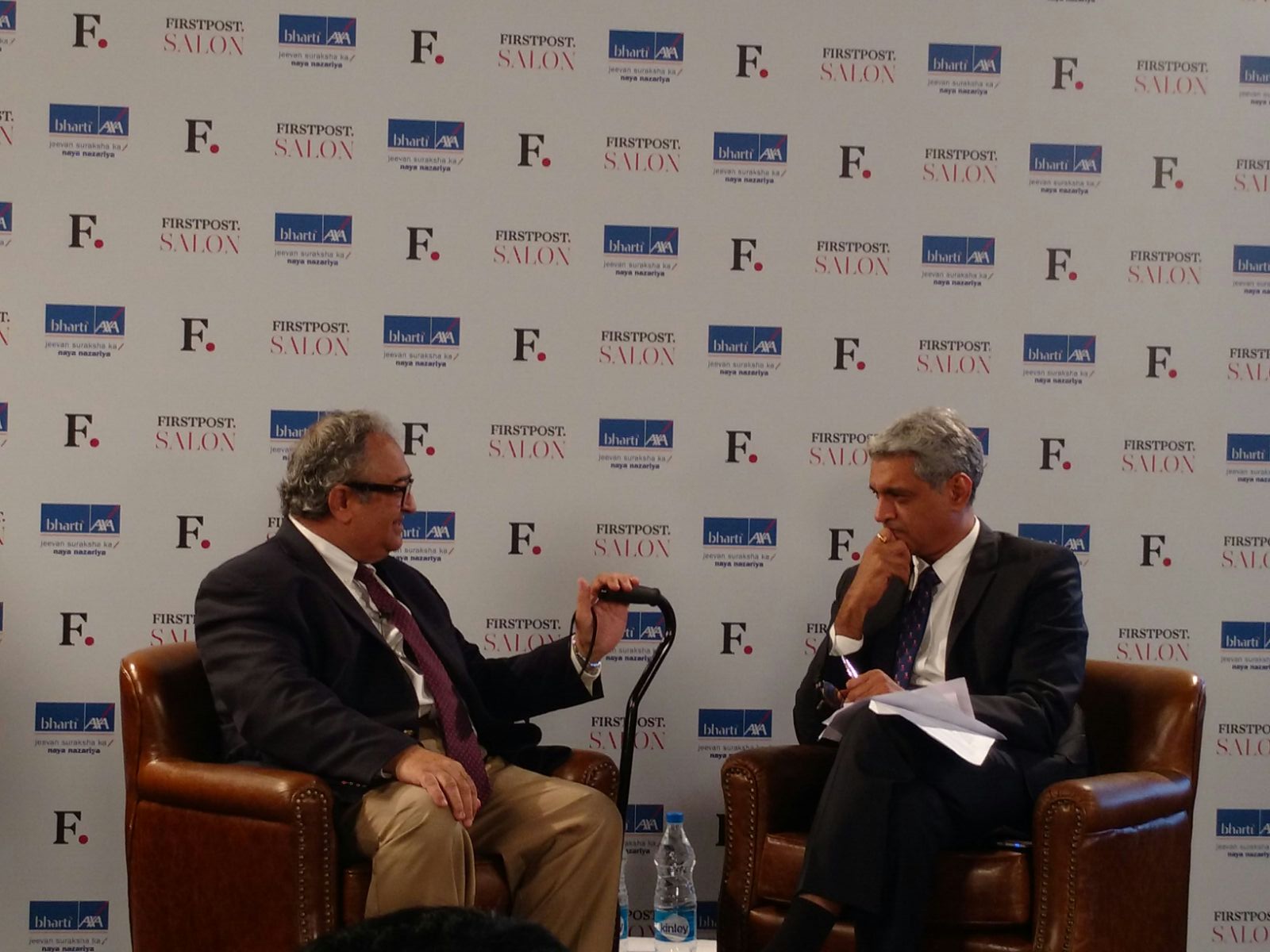
Karachi changed dramatically over the period, says Fatah
Raghu Raman flags off the discussion by asking about Fatah’s childhood. Nostalgia kicks in, and Fatah recounts his earlier days in Karachi. “The city changed dramatically over a few years,” says Fatah.
He saw culture that was rich and which symbolised the multi-cultural shade turning into one colour.
Editor-in-chief of Firstpost BV Rao introduces our guests — Tarek Fatah and our moderator Raghu Raman.
Fatah will weigh in on number of issues, ranging from secularism debate, Aamir Khan’s latest statement on intolerance which has kicked a hornet’s nest and his origins as well.
There were selfies and there were conversations, but the best is yet to come. Tune in.
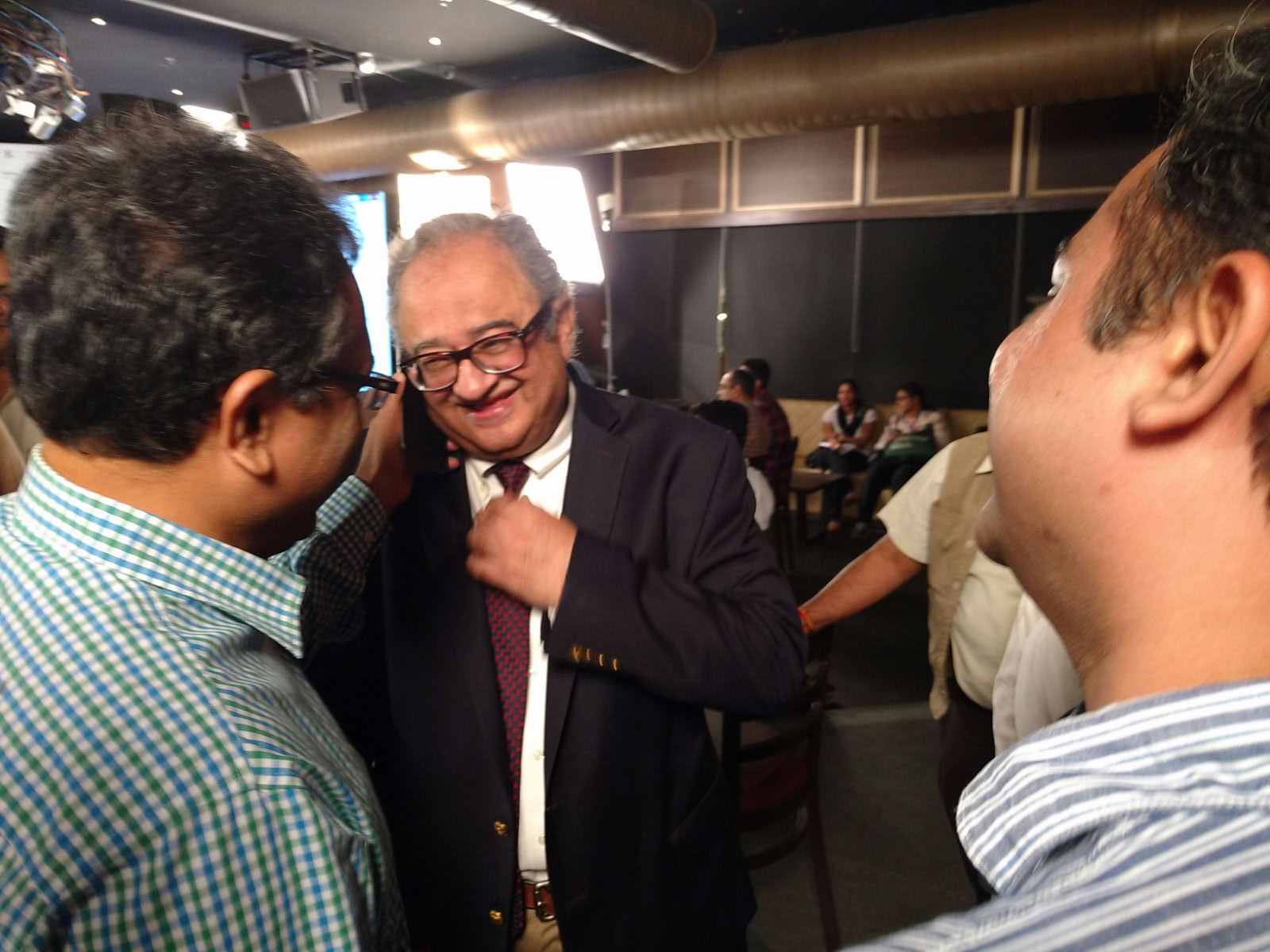
The audience is here and we are about to get underway.
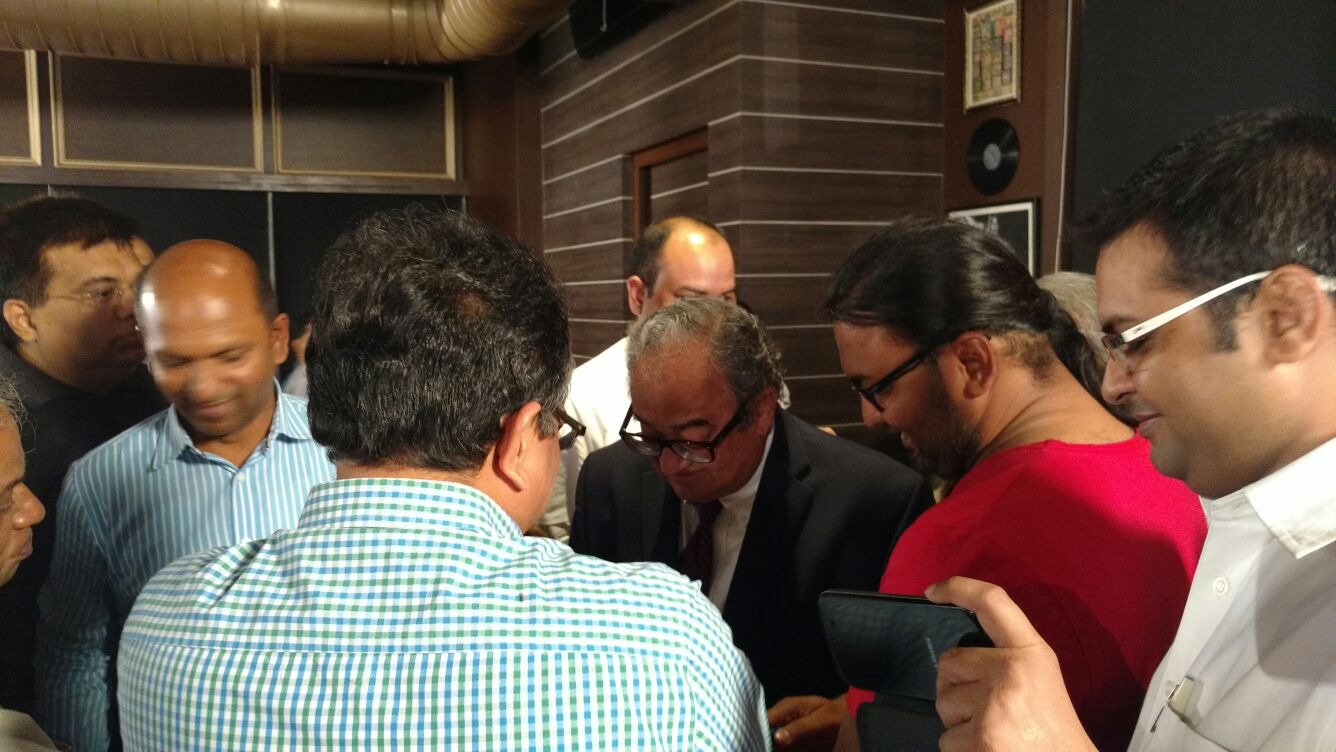
Welcome to the fourth Firstpost Salon
Former Natgrid CEO and ex-Army Captain Raghu Raman will be in conversation with the Canadian author Tarek Fatah shortly. Watch this space for an explosive debate on secularism, terrorism and everything under the Sun.
)
)